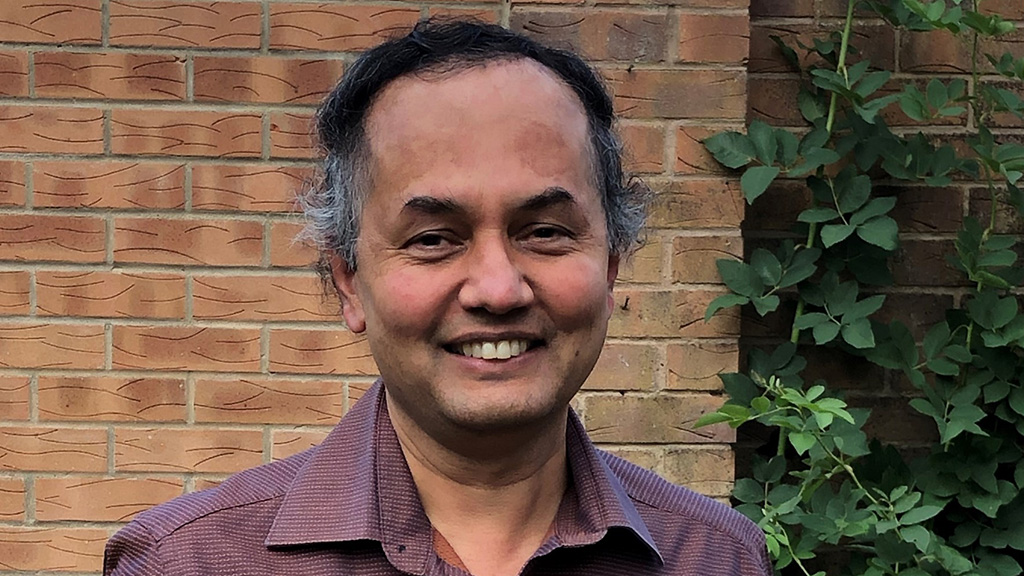January 14, 2022, by School of Medicine
50 at 50: Myth, Medicine and the Marginalised

‘Simpler history is constructed by the victors. Someone like me figured in their stories. Life can be otherwise.’
Abdulrazak Gurnah
Nobel Prize for Literature 2021
A sunny morning in May 2001, I was having breakfast in a hotel in Atlanta, attending the Digestive Diseases Week, Annual meeting of American Gastroenterology Association. Leonard Seeff, distinguished Hepatologist and a friend joined me and introduced Robert Jensen, senior researcher from National Institute of Diabetes and Digestive and Kidney diseases (NIDDK) who was with him. Our conversation led to what was lined up after the completion of my international fellowship at the Medical University of South Carolina. When I told them that I was leaving Charleston to take up Consultant Hepatobiliary Physician’s position at the Queen’s Medical Centre in Nottingham, Robert Jensen quipped ‘Look out for the bow and arrow’.
Robin Hood was the original warrior of social justice, advocate of the wealth distribution, his merry men had sworn to ‘despoil the rich only to give to the poor, to shelter the old and the helpless and to protect all women, rich or poor’. Myth of Robin merges with history when he is credited to have inspired the ‘Magna Carta’, the law of the land.
My visit for the consultant’s interview was my first to Nottingham. The legend of Robin Hood inevitably was (still remains) one of the starting points for a conversation about Nottingham. Gastroenterology and Hepatology in Nottingham was a close second topic of interest then, as a body of work from Chris Hawkey and Robin Spiller was on show in the national and international scientific meetings.
Birth of National Institute for Health Research (NIHR) following ‘A review of UK health research funding’ by David Cooksey (Dec 2006), has singularly and unequivocally transformed the research landscape in the UK. Cooksey report concluded that ‘The research and development (R&D) continuum that should exist between Medical Research Council (MRC), Medical Research charities and National Health Service (NHS) R&D directorates had not reached its full potential because of perverse incentives that value basic science more highly than applied research and by a lack of commitment to R&D in the NHS when massive pressure to achieve front line service targets risked diverting funds away from R&D and the innovation that flows from it’. Report also estimated that while burden of ‘Oral and Gastrointestinal diseases’ accounted for 6% of the disability adjusted life years lost, only 2.5% of the overall public research funding was spent in this area. Nottingham Digestive Diseases Centre, became an integral part of the NIHR movement hosting the inaugural NIHR Nottingham Digestive Diseases Biomedical Research Unit (BRU) in 2008 and has sustained funding in the next two funding cycles in 2012 and 2017, the latter being ‘Gastrointestinal and Liver disorder theme’ of the NIHR Nottingham Biomedical Research Centre. NIHR’s mandate still remains that NHS and Universities, scientists and clinicians collaborate to translate; focus of the Research Excellence Framework (REF) has shifted from vanity of science to clinical and societal impact.
One Saturday in November 2021, I was with the School of Medicine team which hosted an Alumni 40th year reunion for the batch that arrived in Nottingham to study medicine in 1976 and graduated in 1981. Photograph of the students and faculty from the archives show that about 40% of students (of a total of 96) and 6 of the 11 faculty were women. Very few, if any were from minority ethnic background. In 1996, 42% of those who entered medical schools nationally, identified themselves as non-white. About 44% of the doctors and dentists working in the NHS now are from ethnic minority background. Individuals from ethnic minority accounted for 94% of doctors who died of COVID19 in the UK while those working in specialities such as anaesthesia and intensive care were at reduced risk.
While the arts and humanities are leading the ‘Decolonising the curriculum’ movement, medical schools have been slow to reflect upon how forces of colonialism, empire and racism and other forms of discrimination have shaped the systems that we take part in every day. This may in part be due to the hegemony of contemporary medicine (and science), assumptions of its objectivity beyond cultural influence and righteous belittling of lived experiences. The movement that is gaining momentum calls for an extensive structural change and in turn a shift from ‘diverse’ to ‘decolonised’ systems. It rejects tokenism and denies rebranding.
To come to think of it, Robin Hood was a noble man, Sir Robin of Loxley! Magna Carta was written in Latin while the peasants spoke English; one of its article states that ‘Men who live outside the forest are not henceforth to come before our justices…’
By Professor Guruprasad Aithal
Nottingham Digestive Diseases Centre, Translational Medical Sciences, School of Medicine, University of Nottingham
Gastrointestinal and Liver disorder Theme lead; NIHR Nottingham Biomedical Centre, Nottingham University Hospitals NHS Trust and the University of Nottingham
No comments yet, fill out a comment to be the first

Leave a Reply